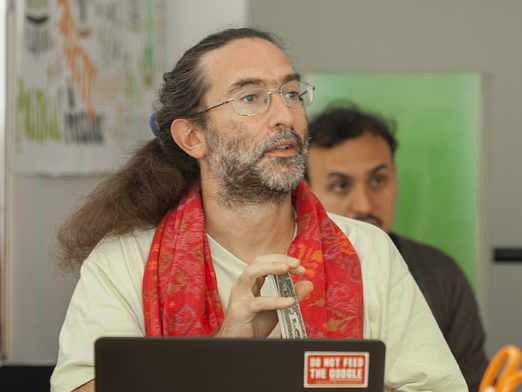At the Basic Income Earth Network 2019 Congress I had a chat with Kang Nam Hoon, designer of the Young Person's Basic Income in Geonggi, in the Suwon province of South Korea. This Basic Income is not paid in the national currency, won, but in a token issued by the regional government and 100% backed by won. Each young person is given a plastic card, and their balance is topped up every month. All the shops can accept the currency using their existing payment infrastructure (which sounds a bit smarter than our Western systems) being able to handle national currencies and other kinds of units. ONLY local businesses are allowed to redeem it for won.
The first order effect, apart from supporting young people trapped by recession and technological unemployment, is that trade in local shops has been shown to have increased by 25%, but he also spoke of a multiplier effect. In Geonggi with its digital currency, the multiplier is small, but a similar project in a neighbouring province uses paper notes, which do circulate further.
I had the impression there weren't a lot of economists in the conference because the multiplier effect was hardly ever mentioned. Just the act of giving money to the poor (instead of say, the too big to fail banks), all but ensures the money will circulate, increasing GDP employment and tax revenue. I wonder if economists don't see the benefits of Basic Income as clearly as other social scientists?
Here's a written interview with the governor of Suwon.

Comments